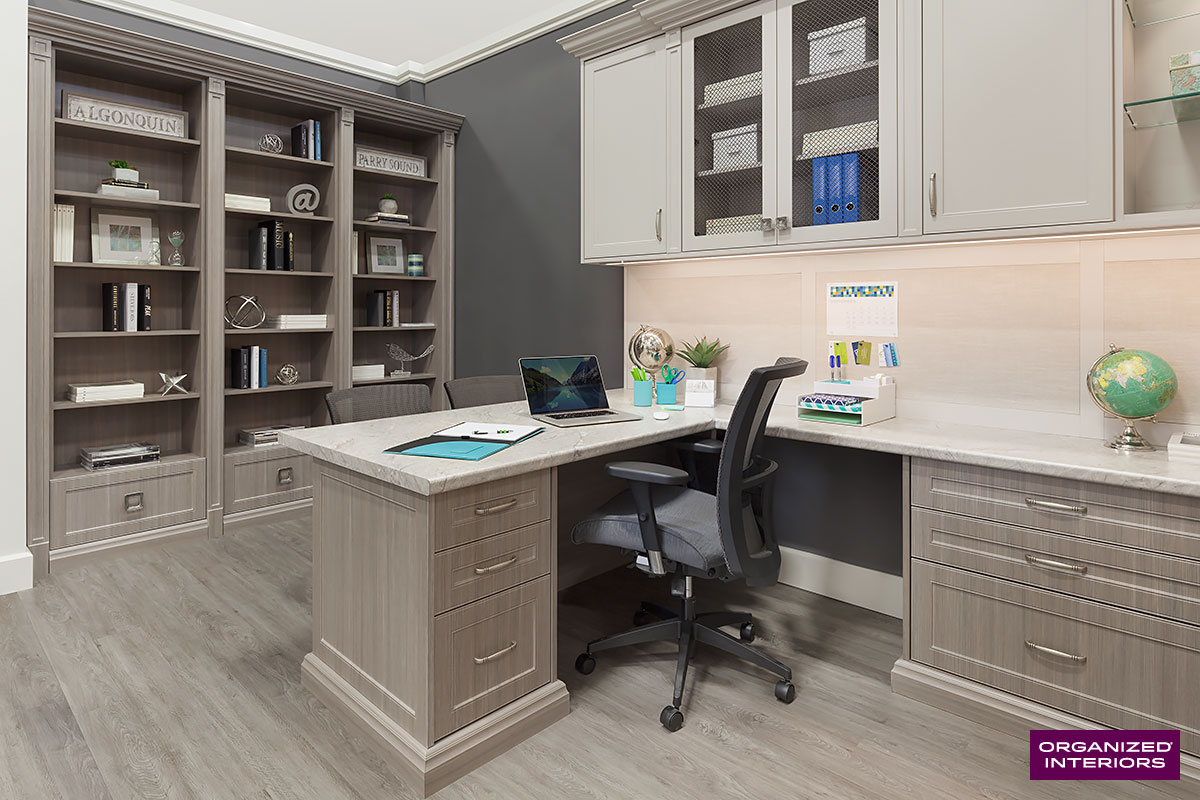One of the notable by-products of advancements in technology in the past decade is that working remotely has become easier than ever.
What is working remotely? It simply means doing your job from home, either on a part-time or full-time basis. This type of working arrangement is also referred to as:
- telecommuting
- virtual commuting
- teleworking
- remote work
- virtual work

More companies are embracing working remotely
There’s a direct correlation between more jobs becoming computer-reliant, technological advances, and the growing trend of working remotely.
There have been sizeable increases in broadband speeds and improvements to WiFi and video conferencing technology.
Advancements in mobile and cloud collaboration technology are also driving the digital shift in workplace structures. And, of course, the number of tech-savvy millennials entering the workforce is another factor.
Forbes reported that in 2016, “43% of Americans spent some time working remotely”. The World Economic Forum’s employment trends forecast cited telecommuting as one of the main factors affecting changes in the workplace.
Each year, more and more companies offer an option to telecommute to their employees. Studies show that some of the benefits to businesses include:
- reductions in office and overhead costs
- longer retention rates of higher quality employees
- better quality work is produced (and at higher productivity levels)
- their employees have lower stress levels
7 reasons working remotely can work for you
As attractive as working from home may seem, it’s admittedly not for everybody. There are challenges, such as maintaining a productive balance between home and work.
Less social contact and not being able to network in person with co-workers may also prove to be a difficult adjustment for some.
For most of us, however, the idea of working remotely from a home office is very appealing. Whether you’re working remotely or self-employed and working from home, there are definite benefits to having your workspace where you live.
Some of the benefits (like saving time) may be obvious, but there are a few other ones you may not have considered. Here are seven key benefits of working remotely from a home office.
1. Set your own hours
Being able to set your own hours is the most obvious benefit of working from home.
As mentioned, it can be tricky finding that healthy balance between your home life and your work responsibilities. Once you do find a good balance, however, the flexibility and freedom that comes with working remotely can be liberating and empowering.
Along with setting your own hours, you can also manage your non-working life much easier. You’ll love being able to take care of tasks like grocery shopping when the stores are less busy. Appointments can be scheduled at times that are more convenient to you.
Or maybe you’re a night owl who does their best work after the sun goes down. If so, you’re tailor-made for telecommuting.
Some adjustments to your work schedule may need to be made to accommodate phone or video conference calls or occasional visits to the office. But for the most part, you can dictate when your work gets done.
2. Say goodbye to commuting
While setting your own work hours is a nice luxury, those with longer commutes to the office might just consider saying “so long” to that part of their daily routine the most welcome aspect of working remotely.
The national average for commute times is 26 minutes (that’s each way, to and from work). In Toronto, that average jumps to 34 minutes, the highest in Canada.
If you happen to live a significant distance from where you work and need to travel during peak traffic times, you could be spending a dozen hours or more per week commuting. We all need to make a living, but at some point, you have to ask yourself exactly how much your time is worth.
Working remotely virtually eliminates this stressful, unpleasant part of the working experience. All of that time you’ll reclaim from not sitting in your vehicle for several hours every week can be spent on more worthwhile things.
If you’re able to work from a home office, you’ll also have a little more flexibility with where you can live. You won’t be as tied down to being located within a short commute to your office…because your office is just a few steps away from where you woke up.
3. Save time getting ready for work
The time you’ll save from working remotely doesn’t just add up by eliminating your commute. Since your home office is now your workspace, you can spend less time on getting prepared for work.
That doesn’t necessarily mean you’ll want to start each workday still dressed in your pajamas, mind you. Getting showered and at least putting on some decent day clothes helps to get you in a working mindset.
This helps to maintain that healthy balance between your professional worker self and your casual at-home self. But if you wake up and feel like getting right to work, working the occasional time in what you wore to sleep is at least an option you never had before!
Being able to telecommute allows your day to get off to a start that’s a little less rushed, which sets a better tone for the rest of your day.
Working from home and the time saved by doing so can be devoted to just about anything. You can spend more time with the family, pick up a hobby, start exercising regularly, or invest it right back into your work schedule.
4. Working remotely can boost productivity
Think about how many interruptions and distractions you get at work. There’s the constant operational noise of the office, co-workers dropping by your desk to chat or ask a question, water cooler conversations, and meetings to attend.
A busy office environment can restrict productivity, which is a problem you won’t have when working remotely. A survey by Staples found that 86% of telecommuters feel they’re more productive working from a home office.
A 2013 Bank of Montreal (BMO) poll of Canadian businesses found that 65% of them saw increases in productivity from their remote workers. Other studies and surveys show that telecommuters are largely more engaged with their work and miss fewer days than those working in a shared office space.
Developing a productive work regimen and blocking out the distractions that are unique to a home working environment may take a little work at first. Once you do have them figured out, you’ll wish you had been able to work from home years ago.
5. Shape your own workspace design
Designing your home office space for maximum productivity is one key part of developing and maintaining a productive home working routine.
One of the great benefits of telecommuting is you can shape your own workspace design any way you want. Most shared office spaces are sterile and have lousy artificial lighting. That type of working environment can make it harder to focus and get the most out of your workday.
A bespoke home office space that’s tailored to your work needs and offers more flexibility should result in better productivity and a higher comfort level.
Start by choosing a good spot for your home office, preferably a room with plenty of natural light. You’ll also want to pick a room that’s separated enough from the rest of your home to avoid interruptions and encourage a consistent workflow.
Your custom home office should be designed to make your most frequently done work tasks as easy and as convenient as possible. Keeping office clutter to a minimum will boost productivity, so ensure your home office design makes it as effortless as possible to stay organized.

Have your home office designed for maximum productivity and comfort.
6. Working remotely can reduce stress
With all the conveniences that come with working remotely, it won’t come as a surprise that telecommuters feel less stressed than those working in a shared workspace.
Study after study shows that those who work at home have lower stress levels than workers in office environments. For starters, you won’t need to deal with any aggravating office politics and drama.
That Staples survey found that on average, employees who transitioned from working in an office to working from home reported their stress levels were 25% lower. 73% also felt that they were eating healthier since they started working remotely.
A 2017 Flexjobs survey of 5,500 workers shows that 78% of the respondents felt that a job with work flexibility (like telecommuting) would result in them being healthier. 86% said they believed they would be less stressed.
The survey also found that stress from commuting was the fourth most popular answer (45% of respondents) as to why someone would seek a job that allowed them to work from home.
7. Save money
Another benefit of working remotely is it allows you to save money. You may be able to write off your home office space, office furniture, and office supplies as a tax deduction.
How much you can claim will depend on your employment status. Those that are self-employed will have more flexibility with tax deductions than those who are considered full-time employees with a business.
The money saved on gas costs alone from commuting will add up to a substantial amount. You’ll also put far less wear and tear on your vehicle, which will extend its life.
CNN reports that the average American spends $2,600 yearly on commuting costs. You could take those savings and put them toward a relaxing family vacation.
Let us design your home office space
Whether you’re working remotely, want an office space for doing taxes or work on the computer, or need a home study space for your kids, Organized Interiors specializes in designing fabulous bespoke home offices.
To plan how your home office space can be designed to get the most out of how you need to use it, book a free in-home design consultation with us.
